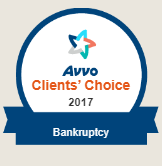Student Loan Debt And Bankruptcy
by Matthew Grech | Dec. 17, 2014 | Article |
Student loan debt has recently become a popular topic of discussion. The primary reason for its popularity is rooted in the fact that the average student loan debt continues to grow year after year, and many are concerned about what negative impact this may have on the overall economy. For example, in 2013 about 70% of college graduates left school with an average student loan debt of $28,400.00, according to the Institute for College Access and Success.
Student loan debt remains a hot-button topic in the world of Bankruptcy because of its unfair treatment under the US Bankruptcy Code. Specifically, as a general rule, student loan debt is not dischargeable (e.g. forgiven) under either Chapter 7 or Chapter 13. Although there is an exception that permits the discharge of student loan debt, the standard that one must meet in order to take advantage of this exception is very high.
The exception is known as the Brunner Test and it consists of three elements, or parts. In sum, if all three elements are satisfied then theoretically a person can have her student loan debt discharged through the Bankruptcy process. The first element addresses the issue of whether, based upon a person’s current income and expenses, she can maintain a minimal standard of living for herself and her dependents if she is required to repay the student loans. This minimal standard of living is also referred to as the poverty line. Put another way, can a person repay her monthly student loan payments and maintain a minimum level of income that is deemed adequate to pay all of her necessary monthly expenses? If the answer is “no,” then an argument can successfully be made that this element has been satisfied.
The next element addresses whether one’s current financial situation is likely to continue for a significant part of the repayment period. Here, a person must exhibit a willingness to improve one’s financial situation. For example, a person cannot purposely choose to live a lifestyle that prevents him from repaying his student loans. In other words, a person cannot have a reasonable opportunity to improve his financial situation, yet choose not to do so.
The third and final element asks whether a person has made a good faith effort to repay her student loans. As one can see, each of these elements is fact intensive, and the burden to prove each element rests with the person seeking to have her student loan debt discharged.
In the event that a person is unable to have his student loan debt discharged in a Chapter 7 Bankruptcy, then he may have the option of paying the debt back through a Chapter 13 Bankruptcy, which provides several benefits over paying the debt back directly to the lender. First, it is important to note that student loan debt is treated as an unsecured, nonpriority debt in Chapter 13 just like credit card and medical debts. This means that student loan debt is not required to be paid back at 100% during the course of the Chapter 13 Bankruptcy, but rather, that which is paid back is based upon what a person can afford to pay back. Thus after completing the Chapter 13 Bankruptcy, a person may continue to have student loan debt obligations.
Now for the benefits. First, a Chapter 13 Bankruptcy has the potential to reduce one’s monthly student loan payment obligations for the duration of the Bankruptcy based upon what a person can afford to pay back. Taken to the extreme, one’s student loan payments can be reduced to zero for the life of the Chapter 13 if she cannot afford to pay the loan back during this time period. Next, an automatic stay is imposed upon the filing of a Bankruptcy Petition, which means that lenders must immediately stop collection efforts. Further, the automatic stay generally remains in place during the life of the Chapter 13 Bankruptcy. These benefits taken together, provide a person with the opportunity to pay her student loan debt down while giving that person the chance to put herself in a better financial position in the future to ultimately pay the student debt off after the Chapter 13 Bankruptcy has concluded.
To further explore what Bankruptcy can offer you, please call Grech Legal at 650-743-2548 for a free debt consultation.


